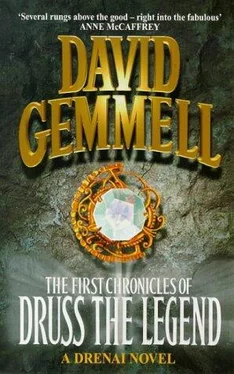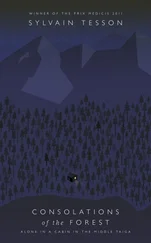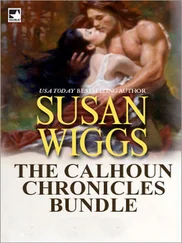Gemmell, David - The First Chronicles Of Druss The Legend
Здесь есть возможность читать онлайн «Gemmell, David - The First Chronicles Of Druss The Legend» весь текст электронной книги совершенно бесплатно (целиком полную версию без сокращений). В некоторых случаях можно слушать аудио, скачать через торрент в формате fb2 и присутствует краткое содержание. Жанр: Старинная литература, на английском языке. Описание произведения, (предисловие) а так же отзывы посетителей доступны на портале библиотеки ЛибКат.
- Название:The First Chronicles Of Druss The Legend
- Автор:
- Жанр:
- Год:неизвестен
- ISBN:нет данных
- Рейтинг книги:4 / 5. Голосов: 1
-
Избранное:Добавить в избранное
- Отзывы:
-
Ваша оценка:
- 80
- 1
- 2
- 3
- 4
- 5
The First Chronicles Of Druss The Legend: краткое содержание, описание и аннотация
Предлагаем к чтению аннотацию, описание, краткое содержание или предисловие (зависит от того, что написал сам автор книги «The First Chronicles Of Druss The Legend»). Если вы не нашли необходимую информацию о книге — напишите в комментариях, мы постараемся отыскать её.
The First Chronicles Of Druss The Legend — читать онлайн бесплатно полную книгу (весь текст) целиком
Ниже представлен текст книги, разбитый по страницам. Система сохранения места последней прочитанной страницы, позволяет с удобством читать онлайн бесплатно книгу «The First Chronicles Of Druss The Legend», без необходимости каждый раз заново искать на чём Вы остановились. Поставьте закладку, и сможете в любой момент перейти на страницу, на которой закончили чтение.
Интервал:
Закладка:
Sieben walked to the rail and saw that people on the quayside had thrown a rope to the struggling warrior in the water. “He might have friends aboard the ship,” observed the poet.
“They’re welcome to join him,” answered Druss.
Drenai 6 - The First Chronicles of Druss The Legend
Chapter Three
Each morning Eskodas paced the deck, moving along the port rail all the way to the prow and then back along the starboard rail, rising the six steps to the tiller deck at the stern, where either the captain or the first mate would be standing alongside the curved oak tiller.
The bowman feared the sea, gazing with undisguised dread at the rolling waves and feeling the awesome power that lifted the ship like a piece of driftwood. On the first morning of the voyage Eskodas had climbed to the tiller deck and approached the captain, Milus Bar.
“No passengers up here,” said the captain sternly.
“I have questions, sir,” Eskodas told him politely.
Milus Bar looped a hemp rope over the tiller arm, securing it. “About what?” he asked.
“The boat.”
“Ship,” snapped Milus.
“Yes, the ship. Forgive me, I am not versed in nautical terms.”
“She’s seaworthy,” said Milus. “Three hundred and fifty feet of seasoned timber. She leaks no more than a man can sweat, and she’ll ride any storm the gods can throw our way. She’s sleek. She’s fast. What else do you need to know?”
“You talk of the… ship… as a woman.”
“Better than any woman I ever knew,” said Milus, grinning. “She’s never let me down.”
“She seems so small against the immensity of the ocean,” observed Eskodas.
“We are all small against the ocean, lad. But there are few storms at this time of year. Our danger is pirates, and that’s why you are here.” He stared at the young bowman, his grey eyes narrowing under heavy brows. “If you don’t mind me saying so, lad, you seem a little out of place among these killers and villains.”
“I don’t object to you saying it, sir,” Eskodas told him. “They might object to hearing it, however. Thank you for your time and your courtesy.”
The bowman climbed down to the main deck. Men were lounging everywhere, some dicing, others talking. By the port rail several others were engaged in an arm-wrestling tourney. Eskodas moved through them towards the prow.
The sun was bright in a blue sky, and there was a good following breeze. Gulls circled high above the ship, and to the north he could just make out the coast of Lentria. At this distance the land seemed misty and unreal, a place of ghosts and legends.
There were two men sitting by the prow. One was the slim young man who had boarded the ship so spectacularly. Blond and handsome, long hair held in place by a silver headband, his clothes were expensive - a pale blue shirt of fine silk, dark blue leggings of lambswool seamed with soft leather. The other man was huge; he had lifted Kelva as if the warrior weighed no more than a few ounces, and hurled him into the sea like a spear. Eskodas approached them. The giant was younger than he had first thought, but the beginnings of a dark beard gave him the look of someone older. Eskodas met his gaze. Cold blue eyes, flint-hard and unwelcoming. The bowman smiled. “Good morning,” he said. The giant grunted something, but the blond dandy rose and extended his hand.
“Hello, there. My name is Sieben. This is Druss.”
“Ay, yes. He defeated Grassin at the tournament - broke his jaw, I believe.”
“In several places,” said Sieben.
“I am Eskodas.” The bowman sat down on a coiled rope and leaned his back against a cloth-bound bale. Closing his eyes, he felt the sun warm on his face. The silence lasted for several moments, then the two men resumed their conversation.
Eskodas didn’t listen too intently… something about a woman and assassins.
He thought of the journey ahead. He had never seen Ventria, which according to the story books was a land of fabled wealth, dragons, centaurs and many wild beasts. He tended to disbelieve the part about the dragons; he was widely travelled, and in every country there were stories of them, but never had Eskodas seen one. In Chiatze there was a museum where the bones of a dragon had been re-assembled. The skeleton was colossal, but it had no wings, and a neck that was at least eight feet long. No fire could have issued from such a throat, he thought.
But dragons or not, Eskodas looked forward with real pleasure to seeing Ventria.
“You don’t say much, do you?” observed Sieben.
Eskodas opened his eyes and smiled. “When I have something to say, I will speak,” he said.
“You’ll never get the chance,” grunted Druss. “Sieben talks enough for ten men.”
Eskodas smiled politely. “You are the saga-master,” he said.
“Yes. How gratifying to be recognised.”
“I saw you in Corteswain. You gave a performance of The Song of Karnak. It was very good; I particularly enjoyed the tale of Dros Purdol and the siege, though I was less impressed by the arrival of the gods of war, and the mysterious princess with the power to hurl lightning.”
“Dramatic licence,” said Sieben, with a tight smile.
“The courage of men needs no such licence,” said Eskodas. “It lessens the heroism of the defenders to suggest that they had divine help.”
“It was not a history lesson,” Sieben pointed out, his smile fading. “It was a poem - a song. The arrival of the gods was merely an artistic device to highlight that courage will sometimes bring about good fortune.”
“Hmmm,” said Eskodas, leaning back and closing his eyes.
“What does that mean?” demanded Sieben. “Are you disagreeing?”
Eskodas sighed. “It is not my wish to provoke an argument, sir poet, but I think the device was a poor one. You maintain it was inserted to supply dramatic effect. There is no point in further discussion; I have no desire to increase your anger.”
“I am not angry, damn you!” stormed Sieben.
“He doesn’t take well to criticism,” said Druss.
“That’s very droll,” snapped Sieben, “coming as it does from the man who tosses shipmates over the side at the first angry word. Now why was it a poor device?”
Eskodas leaned forward. “I have been in many sieges. The point of greatest courage comes at the end, when all seems lost; that is when weak men break and run, or beg for their lives. You had the gods arrive just before that moment, and offer divine assistance to thwart the Vagrians. Therefore the truly climactic moment was lost, for as soon as the gods appeared we knew victory was assured.”
“I would have lost some of my best lines. Especially the end, where the warriors wonder if they will ever see the gods again.”
“Yes, I remember… the eldritch rhymes, the wizard spells, the ringing of sweet Elven bells. That one.”
“Precisely.”
“I prefer the grit and the reality of your earlier pieces: But came the day, when youth was worn away, and locks once thought of steel and fire, proved both ephemeral and unreal against the onslaught of the years. How wrong are the young to believe in secrets or enchanted woods.” He lapsed into silence.
“Do you know all my work?” asked Sieben, clearly astonished. Eskodas smiled. “After you performed at Corteswain I sought out your books of poetry. There were five, I think. I have two still - the earliest works.”
“I am at a loss for words.”
“That’ll be the day,” grunted Druss.
“Oh, be quiet. At last we meet a man of discernment on a ship full of rascals. Perhaps this voyage will not be so dreadful. So, tell me, Eskodas, what made you sign on for Ventria?”
“I like killing people,” answered Eskodas. Druss’s laughter bellowed out.
Читать дальшеИнтервал:
Закладка:
Похожие книги на «The First Chronicles Of Druss The Legend»
Представляем Вашему вниманию похожие книги на «The First Chronicles Of Druss The Legend» списком для выбора. Мы отобрали схожую по названию и смыслу литературу в надежде предоставить читателям больше вариантов отыскать новые, интересные, ещё непрочитанные произведения.
Обсуждение, отзывы о книге «The First Chronicles Of Druss The Legend» и просто собственные мнения читателей. Оставьте ваши комментарии, напишите, что Вы думаете о произведении, его смысле или главных героях. Укажите что конкретно понравилось, а что нет, и почему Вы так считаете.












